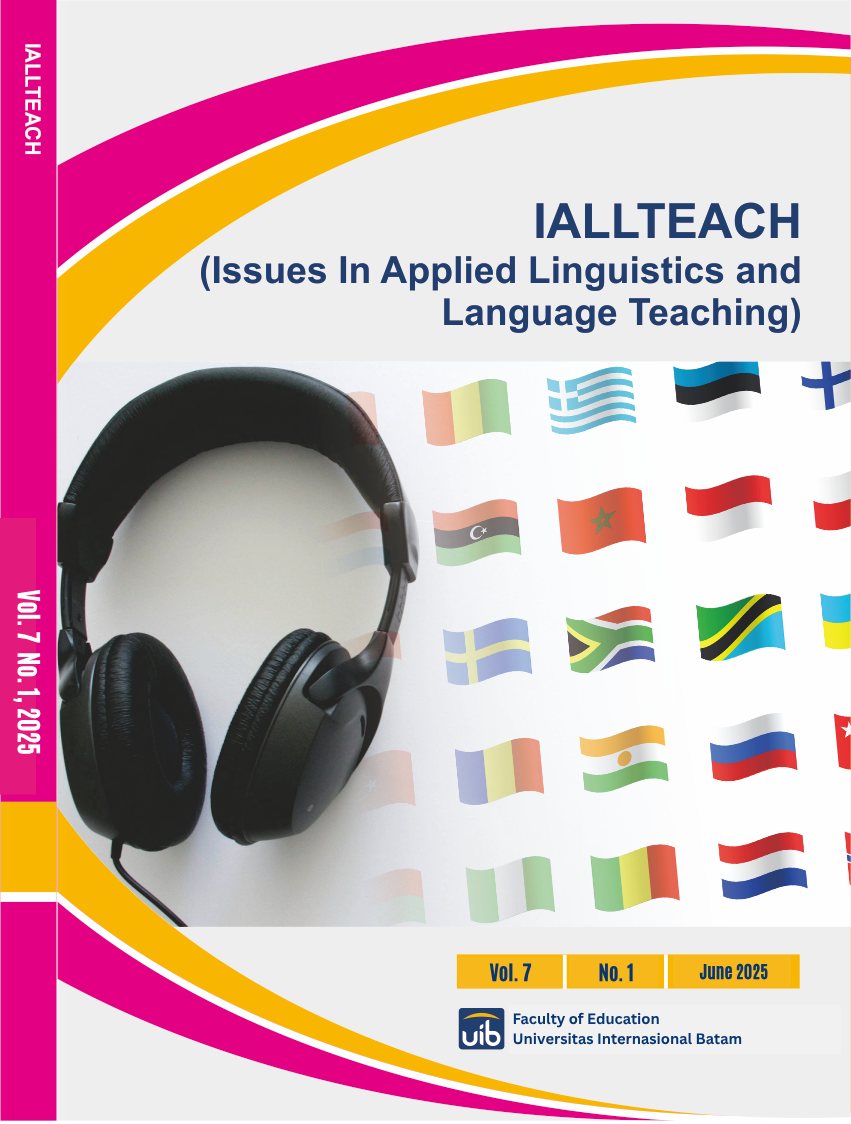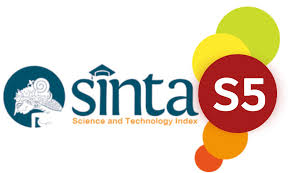Postmodern Teachers’ Self-understanding in Sekolah Penggerak
DOI:
https://doi.org/10.37253/iallteach.v7i1.10415Keywords:
professional self-understanding, sekolah penggerak, post-modern english teacher, professional development, ELTAbstract
This study investigated how teachers enhanced their professional self-understanding as educators and how this self-understanding influenced their teaching performance. The study adopted a narrative inquiry research design. Qualitative data were collected through semi-structured interviews, guided by Kelchtermans’ theory. The data were gathered from seven teachers in Sekolah Penggerak, categorized into two groups: novice teachers and experienced teachers. Thematic data analysis was used to analyze the qualitative data. The research drew two main conclusions regarding teachers’ professional identities and the impact of continuous learning on their performance. First, most teachers unequivocally identify themselves as educators. Second, professional self-understanding significantly impacts teachers' teaching performance. The study suggested several recommendations for future research to expand upon its findings and provided more comprehensive insights into professional self-understanding in various educational contexts.
Downloads
References
Badis, A. I. (2018). Exploring Teachers’ Identity: Reflections and Implications. Arab World English Journal, 108-120.
Beijaard, D., Verloop, N. & Vermunt, J.D. (2000). Teachers’ perceptions of professional identity: an exploratory study from a personal knowledge perspective. Teaching and Teacher Education, 16, 749-764.
Ben-Peretz, M., Mendelson, N., & Kron, F. W. (2003). How teachers in different educational contexts view their roles. Teaching and Teacher Education, 19 (2), 277-290.
Beauchamp, C., & Thomas, L. (2011). New teachers’ identity shifts at the boundary of teacher education and initial practice. International Journal of Educational Research, 50, 6-13.
Bullough, R. V., & Gitlin, A. D. (2009). Becoming a student of teaching: Linking knowledge production and practice. Routledge.
Braun, V., & Clarke, V. (2006). Using thematic analysis in psychology. Qualitative research in psychology, 3(2), 77-101.
Conway, P. F., Murphy, R., Rath, A., & Hall, K. (2017). Teacher identity and pedagogy.
Darling-Hammond, L., Andree, A., Richardson, N., & Orphanos, S. (2009). Professional learning in the learning profession: A status report on teacher development in the United States and abroad. Dallas, TX: National Staff Development Council.
Day, C., & Gu, Q. (2010). The new lives of teachers. Routledge.
Elvyra, E., Prasodjo, P., & Zaki, L. B. (2024). Analyzing frame stories in a pilot study of empathy-based stories to implement in Indonesian elt context. Visipena, 15(1), 1–12. https://doi.org/10.46244/visipena.v15i1.2551.
Gervasoni, R. B. (2016). Images of teaching: Discourses within which pre-service teachers construct their professional identity as a teacher upon entry to teacher education courses. In C. M. Chou & J. Y. H. Ching (Eds.), Developing teacher identity: Emerging discourses in teacher education (pp. 117–137). Sense Publishers.
Ghazali, A. M., & Effendi, D. (2009). Merayakan kebebasan Beragama: Bunga Rampai Menyambut 70 Tahun Djohan Effendi. Penerbit Buku Kompas.
Kelchtermans, G. (1993). Getting the story, understanding the lives: From career stories to teachers’ professional development. Teaching and Teacher Education 9, (5-6), 443- 456.
Lather, P. (2010). Getting lost: Feminist efforts toward a double(d) science. State University of New York Press.
Leedy, P. D., & Ormrod, J. E. (2021). Practical Research: Planning and Design (12th ed.). Pearson.
Ling, J., & Catling, J. (2012). Psikologi kognitif (J. Smith, Trans.). Erlangga.
Moleong, L. J. (2010). Metodologi penelitian kualitatif. PT Remaja Rosdakarya.
Prasodjo, P., Kweldju, S., Mukminatien, N., & Ivone, F. M. (2025). Unleashing Gemini: Enhancing EFL lexical collocation and writing style through lexically-based language teaching model. International Journal of Religion, 6(1), 50–67. https://doi.org/10.61707/hb2kzm10.
Prasodjo, P., & Ponto, G. (2023). Kahoot! and EFL learners’ confidence in a vocabulary classroom: A correlative study. The Journal of English Teaching for Young and Adulty Learners, 2(January), 1–11. https://ejournal.stkippacitan.ac.id/ojs3/index.php/jeeyal/article/view/630.
Sachs, J. (2005). Teacher education and the development of professional identity: Learning to be a teacher. In P. M. Denicolo, & M. Kompf (Eds.), Connecting Policy and Practice: Challenges for Teaching and Learning in Schools and Universities (pp. 5-21). Routledge, Taylor and Francis Group. https://doi.org/10.4324/9780203012529.
Sagala,Syaiful, (2009). Kemampuan Profesional Guru dan Tenaga Kependidikan,Bandung: Alfabeta
Setiawan, J., & Suryana, A. S. (2018). Pemikiran postmodernisme dan pandangannya terhadap ilmu pengetahuan. Jurnal Filsafat, 28(1), 25–46.
Sugiyono, D. (2013). Metode penelitian pendidikan pendekatan kuantitatif, kualitatif dan R&D.
Wora, E. (2006). Perenialisme: Kritik atas Modernisme dan Postmodernisme.




.png)






